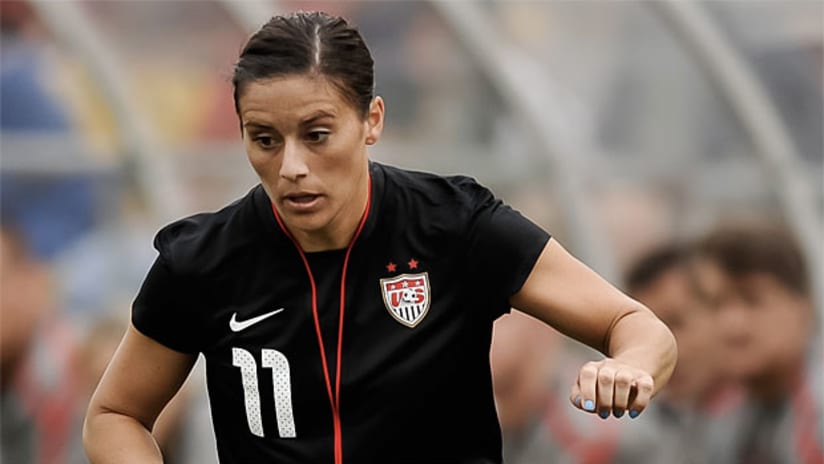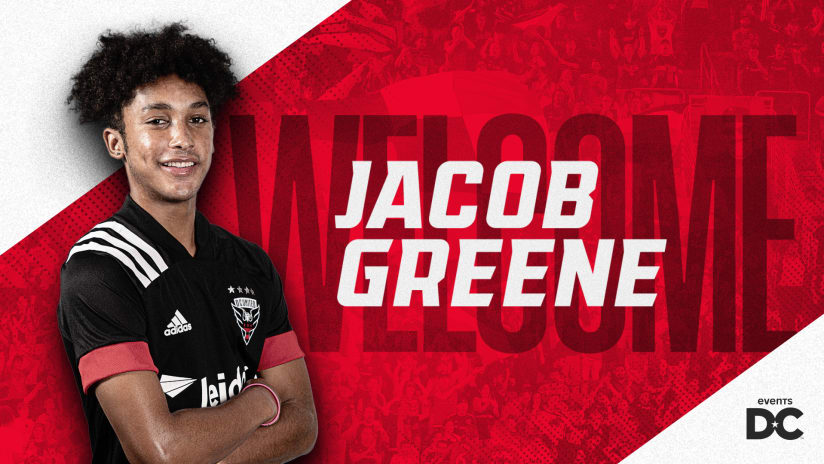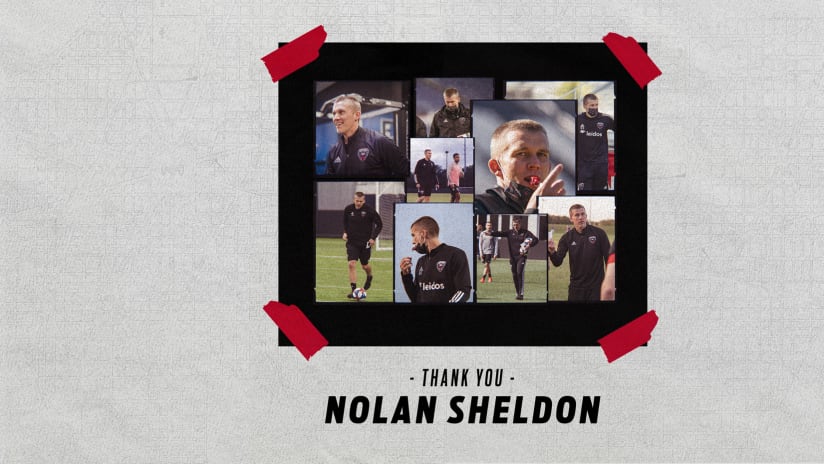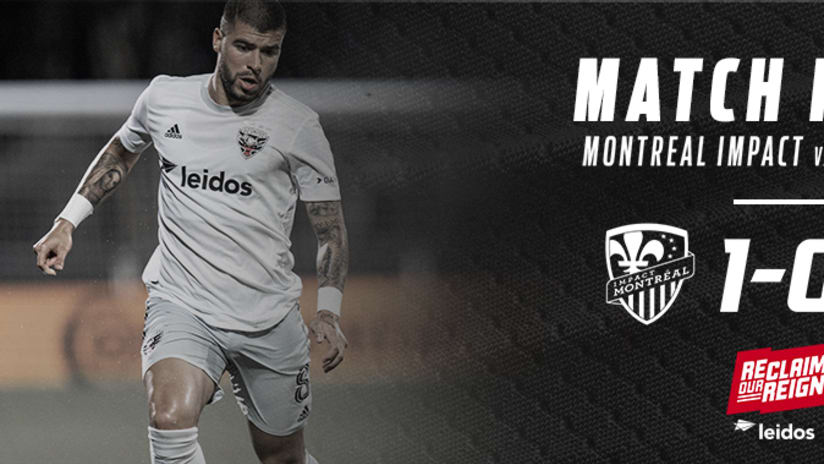The U.S. Women’s National Team leaped to the forefront of the American sports scene with their thrilling penalty kick-shootout win over Brazil in the World Cup quarterfinals on Sunday, and Dumfries, Va. native Ali Krieger was one of the central figures, playing the full 120 minutes at right back before netting the decisive PK that clinched the U.S. victory.
Ali’s father Ken and her mother Deb were two of the 25,598 spectators in attendance at Dresden’s Rudolf-Harbig Stadium on that fateful evening, a rare match in which Ken, the Technical Director of Coaching at local youth powerhouse Prince William Soccer, Inc., found himself in the role of parent and fan rather than coach. He was kind enough to share his experiences with Potomac Soccer Wire via trans-Atlantic phone call on Tuesday morning.
PSW: First of all, can you share what Sunday’s emotional drama was like for you personally?
KK: Well, I can only tell you that it was absolutely one of the top moments of my life, that’s for sure. To actually see your child go out and play the way she’s done, perform and represent her country in the way that she has, it’s been absolutely amazing on my part as a parent. And as a coach, a person involved in soccer all his life, I think this is obviously the one moment that I can just live the rest of my life and now be happy. The stadium was nuts, pandemonium after Ali scored the last penalty.
Obviously it’s not about just Ali’s last penalty, because there were four other ones that were brilliant as well. Just the drama about the whole thing – I was once again just sitting, trying to be as calm and collected as I could, and just hoping that they would get another chance and hopefully one of the chances they would stick in. I’ve known for so long how funny this game can be, and it can be devastating to a team that has outplayed you, but also can be rewarding to a team that just continues to persevere and work. I think that was the nature of the game against Brazil: they just persevered and kept working. They never quit, they never say die and they finally got the one ball in and Abby [Wambach]’s header was unbelievable.
In my opinion the referee was below average compared to some of the other World Cup referees we’ve seen throughout the last three games up to this point. So I was a little disappointed with that. But it’s been an amazing experience so far; the environment here is great. We’re just loving life.
PSW: You’ve watched about as much soccer as anyone, but what’s it like watching your daughter on that stage? How does that differ from your perspective as a coach?
KK: Well, I still try to break the game down. I still haven’t gotten out of the analytical part of it. But I am enjoying it. Not having the stress, the pressure of being on the sidelines, being a coach – just watching my daughter play and just enjoying watching her as well as the other players on the team. I try to break down the team, find weaknesses, what I would do as a coach on the sideline, but I am really enjoying the whole atmosphere, the whole setting.
People have embraced this World Cup over here, we’ve had three games out of the four [U.S. games] have been sold out and the only one that wasn’t sold out was 400 or 500 shy of selling out. The whole culture over here is so different than what we have in the United States, and it’s unfortunate that more people don’t come over and just experience this type of environment that we have here [in Germany]…It’s a wonderful experience.
PSW: It’s strange to hear you say that, because Sunday’s game was pretty stressful for millions of us watching here in the United States.
KK: [laughs] You know, not to play this down by any means – because it was an amazing situation – but for me, I was just sitting there trying to say, “Ok, they can do this, they’re down to ten men, they’ve got to make some changes,” and just tried to think about changes they could make, what system they would go to. And the girls themselves, led by Abby Wambach and a host of others, just did not quit. It was unbelievable – there were so many times they could’ve given up, and they just kept fighting.
My ex-wife is sitting next to me and we’re going through these penalty kicks and she says, “Oh my God, who do you think will take them?” And I said, “I’m sure Abby will take one, I’m thinking [Megan] Rapinoe will take one, Carli Lloyd will take one, because they’re all free kick specialists.” Then it comes down to the fifth one and I see Ali walking out there and I go, “Deb, your daughter’s going to take the next penalty kick.”
And she about flipped. I said, “Relax. She has worked all her life for this one moment. She’ll come through, and we’ll be fine.” I was more anxious than I was nervous, because I was anxious for her to just take care of business. And I was so happy that she pulled through.
When you really look at it on the grand scale of what my involvement has been with this game, when you see your daughter come in and she’s taking the last PK to put Brazil out of the tournament, to put [the U.S.] into the semifinals? Absolutely MasterCard priceless.
PSW: I think some observers were a bit shocked to see Ali take the last PK, as someone who didn’t really lock down her spot on this team until fairly recently.
KK: The goalkeeper coach was putting together the list of people to take the PKs, and he looked at Ali and said, “Ali, what do you think?” And she said, “Look, if you put me on the list, I’ll make the shot.” So he said OK and put her on the list.
You know, you want people there like Ali who have been trained in a lot of different ways throughout her career. She was brought up to be very independent, to stand on her own two feet – if she falls, to learn how to get up on her own. She’s dealt with pressure all her life and this is just another stage – and obviously it’s on the world stage, and that would probably make people crumble, just the thought of it – I think it’s just a situation that she’s been preparing for all her life. It’s something I expected would happen, and I loved it. It was just in the cards.
PSW: For all the drama and heroics, this U.S. team hasn’t really hit their stride yet, have they? It seems we’ve only seen flashes of their best.
KK: I would agree. I think they’re a unit. I think they play well as a team. But the instruction that they have been receiving is something that I think a lot of people would question. Are we going to stay with this long ball-type program, or are we going to try to push the ball around? Are we going to change anything? That seems to be what the coach [Pia Sundhage] wants them to do. I’m not sure. And obviously, it has worked for them, with the exception of Sweden.
So I’d like to think that they would maybe make a couple changes with their ideas – I won’t say their style of play, but maybe change the game around a little bit to put more balls in on the forwards’ feet, push the ball around a bit quicker. I would think the speed of play needs to be picked up considerably, and I’d like to think that connecting the passes and keeping possession [could improve]. If you can’t go forward, then look to possess it. Unfortunately we try to go forward all the time and sometimes it’s a little frustrating – I know it’s probably frustrating to the girls. But they’re staying true to what the coaches, and they follow through on it.
PSW: You’ve probably seen the media frenzy that has erupted over the U.S. Women here in the States. What is the local reaction like in Germany?
KK: Oh, it’s no different here than it is over there. They have every front page of the sports pages, they got excerpts on CNN, EuroSport news TV – everything is about the Americans and how they came through, and they showed highlights and so forth. They still have some of the unfortunate parts of the German National Team getting knocked out…They’re, as we would say, under investigation trying to figure out why they lost and I’m not sure if they’re looking for a scapegoat, but they’re looking for some answers.
PSW: And finally, could you give a quick word on France, the United States’ semifinal opponents?
KK: From what I’ve seen, technically they’re very good. I think it’ll be a very good match. There’s a little bit of a different style in France – they’re going to have to deal with the fitness and the athleticism of the American team and I think that we have an advantage. Obviously they have some speed in their team, especially up top – [Marie-Laure] Delie is someone that [the U.S.] is going to have to give some attention to. But I believe that the U.S. is going to pull this one out, and I don’t think it’ll be in overtime.




